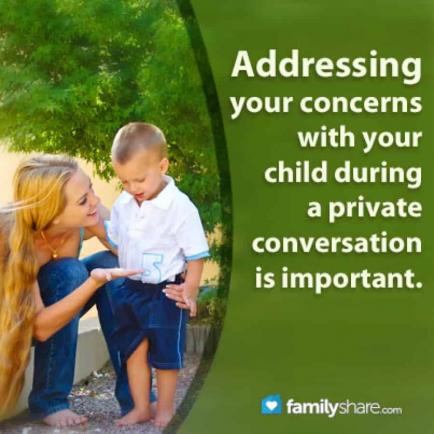
A daydreaming child is one that is easily distracted by their imaginary world when their mind is not actively engaged in learning activities. For many children, this distractibility continues well into school age and can become a concern as children that seem to wander in daydreams are not able to stay on-task at school or reach their learning potential.
While there are several ways to deal with daydreamers let's focus on those things you should attempt to avoid as they are detrimental to a child's developing sense of self.
-
Never criticize or condemn a child in public for daydreaming. If your child is daydreaming it is simply as a creative outlet for their imagination. It is not making a bad choice. It is not doing something that is wrong. Calling out a child in front of their peers about daydreaming can make a child feel like they have done something wrong or worse, that they are a bad person because they cannot control their daydreaming.
-
While it's important not to focus negative attention on a child that is daydreaming, it is also important not to ignore or completely disregard it, either. Addressing your concerns with your child during a private conversation is important. The key is to remember that during the conversation you should be speaking positively about their imagination, how creative they are, and then move to addressing how their daydreaming can become a problem in specific situations. Talk to your child about daydreaming; take the time to learn about what they are daydreaming about and see if there is a connection to their real-life world that needs to be addressed. This not only helps you learn about what might be going on with them, but also helps you determine the best course of action in dealing with the daydreaming.
-
Never tell a child to stop and leave it at that. Telling a child to stop immediately could damage their self-esteem. While you can explain the purpose and concerns, it is important that you allow them to be involved in the solution. Simply telling a child to stop is not effective. In fact, it can be quite damaging. You must work with your child to create a plan, have specific steps explained, and allow them to come up with goals and ways to reach them.
Whether you are working with a child of your own that daydreams, a relative, or a child in your school class; it's important to remember that daydreaming is simply and outlet of a creative imagination. For many children, it is the way they process situations happening in their own life. If you can learn to embrace the child and learn about their specific situation you will be much better equipped to help them find a positive way to deal with them on their own. Most importantly, remember that it is never appropriate to call negative attention to the daydreaming, force them to immediately quit, or otherwise impose unrealistic expectations that can cause more damage to their individual self-worth.

